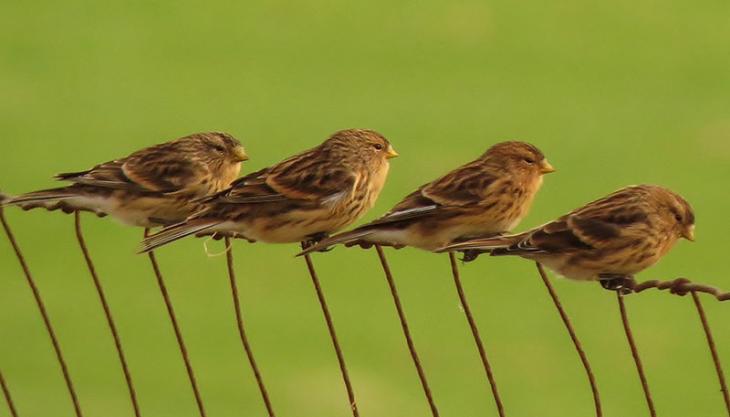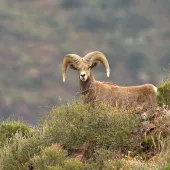CEMEX do the twite thing at Dove Holes

Company gives endangered bird a fighting chance by creating flower-rich meadow close to nesting site
THE CEMEX team at Dove Holes Quarry in Derbyshire is helping to save the twite – a bird not dissimilar to the sparrow only smaller – by creating a flower-rich meadow which will provide seeds such as sorrel. The twite is one of only two British bird species that feed their young entirely on seeds, so an abundant supply close to their nests is vital.
Working in partnership with the RSPB, the 5ha field adjacent to the twites’ breeding area at Dove Holes has recently been planted with a special seed mix to encourage the growth of a flower-rich meadow which next spring will provide the vital seeds needed by the chicks.
Currently close to extinction and only just clinging on to survival, the twite has the most restricted distribution of any English breeding bird. The majority of the population is centred on the south Pennine moorlands near Huddersfield but there is also a tiny population that nests in Dove Holes Quarry.
Nesting in fissures in the quarry face, these little birds have declined rapidly in the 20th century as traditional late-cut hay meadows have been replaced by ryegrass silage fields which provide no food suitable for the twite. Today it is thought that there are fewer than 100 breeding pairs in England.
George Hudson, a keen local birdwatcher who has been keeping an eye on the birds at the quarry for several years, commented: ‘Despite the fact that they are tough little birds, we are in a grim position throughout the country. In 2008 there were around 50 twite in this area, but… through the summer we have seen around 10 or 11 but no young.’
According to Mr Hudson, they can recover from this very small number and the new meadow will make all the difference, giving them a fighting chance.
RSPB conservation officer Tim Melling added: ‘Twite used to be common and widespread throughout the Peak District but now this tiny population is all that remains. If we lose these birds we might never get them back, but if we help them, they may provide a nucleus to regain their former status in the Peak District. Creating this perfect meadow right next to their nesting grounds should certainly help.’









